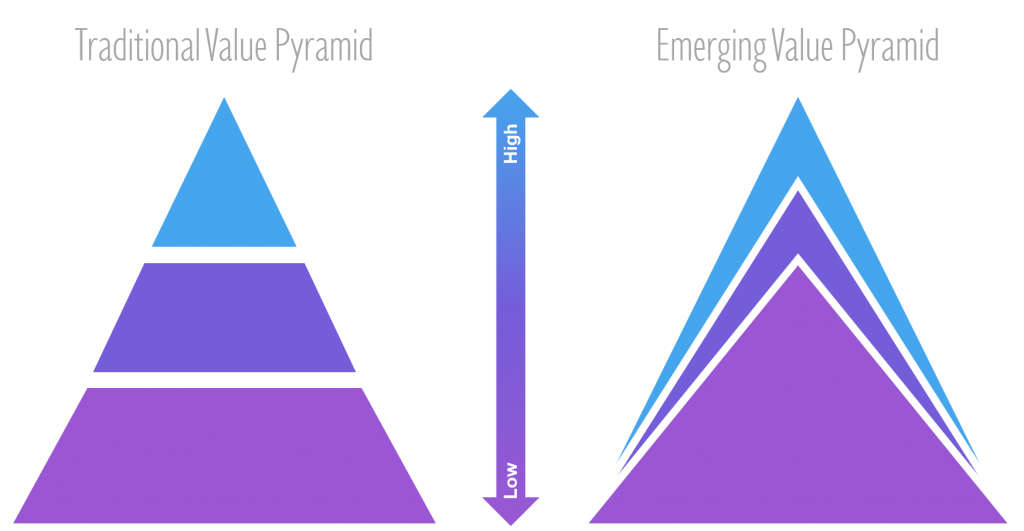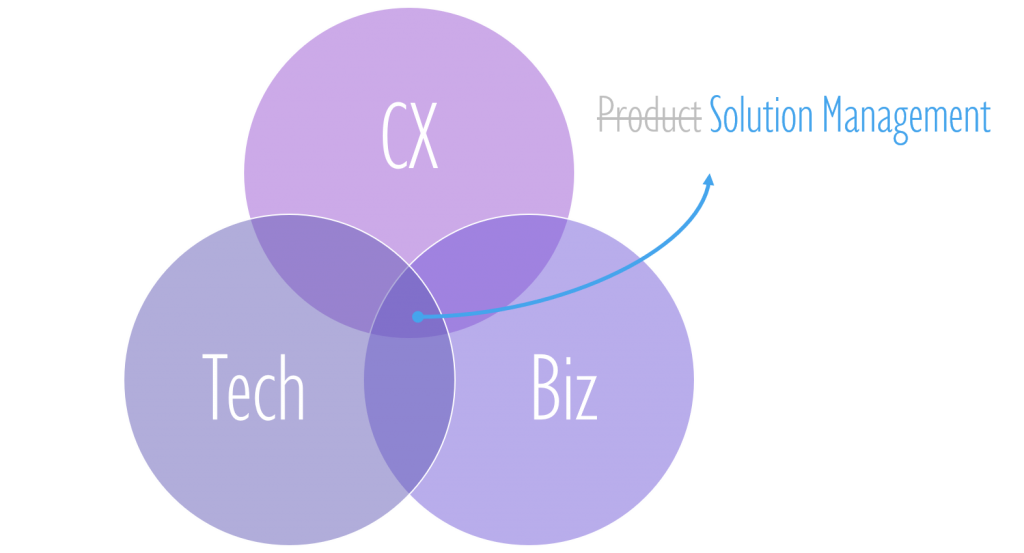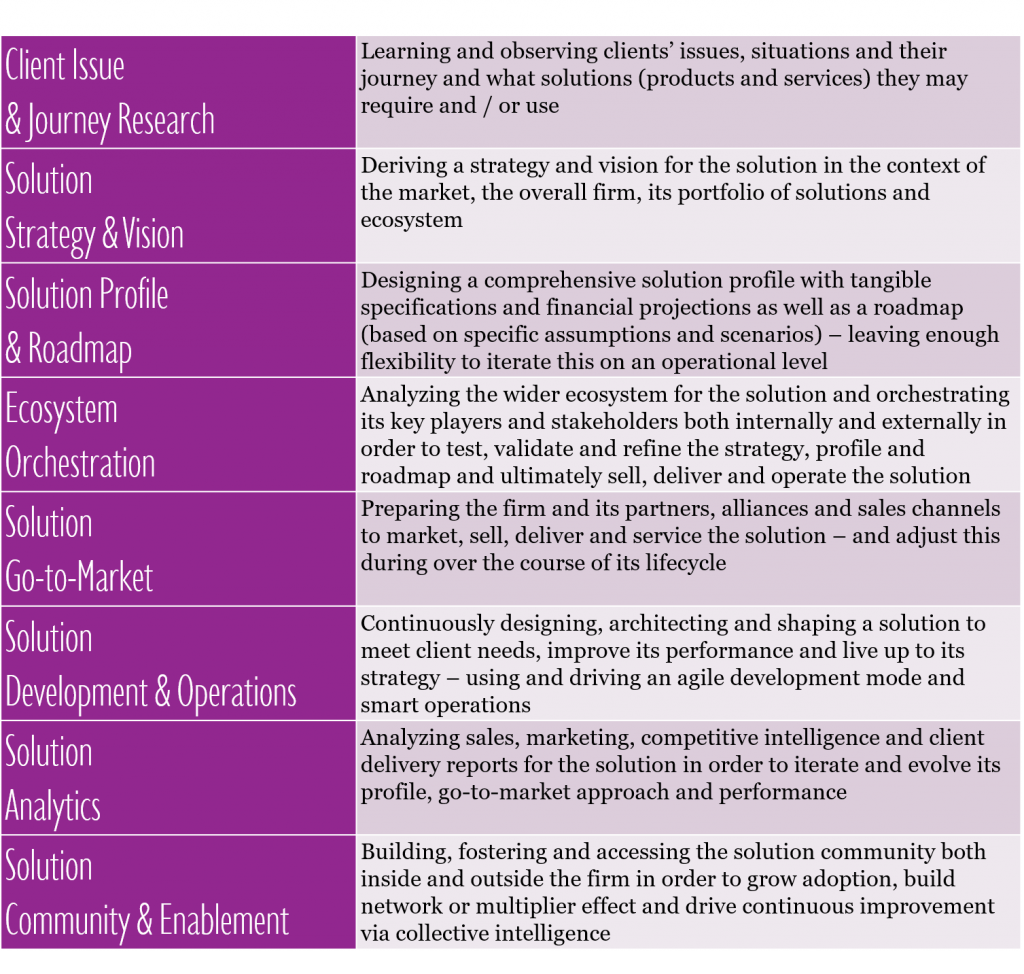An article by Sebastian Hartmann, July 2019
Is your consulting, accounting, tax or law firm looking for the next growth curve? Is the path to partner status in your organization strongly defined by growing personal revenue numbers? Then you should rethink where future growth may be coming from: Because the rockstars and rainmakers in next generation professional services may be what any other industry would call „Product Managers” these days. Professional Service Firms (PSFs) are beginning to realize that their competitive edge, continued profitability and future growth is not going to be determined solely by a bunch of highly skilled sales people and some delivery leverage and talents. Current developments paint a very different picture of the key building blocks for stable success and growth in professional services:
Clients of law firms, consulting and accounting firms or even creative / marketing agencies are looking for clearer and more tangible value propositions these days. And they consequently demand more value-oriented compensation models. In order to win clients, deliver reliably and efficiently (on-time, in-quality and profitably) and enable more digital and thus scalable business models, PSFs are not only embedding technology across their business, but are also beginning to change their operating models significantly. We see different management levers evolving into new functions and roles. Some typical examples may be found in the frequently observed innovation initiatives, ecosystem and alliance management efforts or cloud transformation and technology platform projects. These examples are quite common amongst the major PSFs globally by now. And at the center of all this change, we see a new key dimension taking shape: Solutions.

Yes, even the most traditional and deeply expertise focused PSFs are beginning to adopt the term „solution”, which has been mostly coined by technology providers up until now. Solutions are becoming the third key dimension and management object, which complements the two traditional focus areas – clients and expertise. This new dimension expresses the need to design the value chain much more systematically. And it also drives another important shift in how PSFs look at their business: The differentiation between low and high value work is fading. The managing partner of one of the leading law firms in Germany recently confirmed this at an executive roundtable, which I had the pleasure of hosting: „There is no such thing as high value work without a low value foundation. That differentiation doesn’t make any sense for us – we need to excel across everything we do, because all high value work is based on low value foundational work – and often cannot be sold or delivered otherwise. We need to think about this in an integrated approach in order to stay competitive.”

This managing partner and his firm clearly recognize the increasing integration of various, high and low value capabilities into specific solutions and the implications of this shift in mindset for the firm. This train of thought eventually questions the existing traditional ways to sell and deliver value in professional services – and opens up the path towards innovative solutions and business models. And herein lies an important foundation for „solution thinking”, which takes places at the intersection of business, technology and, most importantly, the client‘s experience with it.

But what exactly does a product solution manager do? There is a growing number of product management related articles, books, guidelines and templates out there. They all paint a similar picture of the role and its key responsibilities. Gartner, a leading research firm, summarizes digital product management as “a blend of art and science, an emerging discipline and practice that extends the scope of the product manager’s role, embracing design principles (the art) and quantitative insights (the science) to inform product vision, direction, trade-off decisions and differentiating customer experiences“.
The following table outlines some key elements of this role which have been slightly adapted for a professional service context and the solution idea (instead of products or services):

Embracing this role concept and translating it to a professional service environment may hold the key to significant and transformational growth for the next generation firms. Many industries, which go through digital transformations themselves, experience the same demand – so it is no surprise that about 7% of Harvard graduates go into product management these days, according to the Wall Street Journal.
So, bear with me for some key legs of this journey for your firm:
- Start by talking about „solution management” instead of „product management”. Why? Because professionals love to solve their clients’ most difficult problems – or they like to think of themselves that way. Selling standard products is nothing they can identify with very well. However, professionals do recognize that methods, tools and experience (aka data, information, insights) are key – and that their clients may want to look into this during a pitch in order to buy the best „solution” available on the market. And everyone is always keen to show up with proven and excellent „solutions”.
- Continue to translate the key elements of (digital) product management to your specific firm context. This may sound easier than it actually is, because the concept is still foreign to the professional service industry. Looking at other adjacent industries may be helpful and may also allow your firm to slowly adapt to this new thinking and adopt the role for itself – while also evolving the surrounding organization. Probably, your solution management playbook will need to tick at least the content boxes of our table above but needs to respect your specific firm’s context and setup.
- Incentivize solution managers based on the overall performance of their solution – and not on their personal revenue or sales contribution within the firm. This is probably the biggest game changer: It breaks with the traditional recipe for success by being the best client facing sales person or expert. Solution managers do not need to be in sales or delivery. They are a class all its own. Some sales or delivery experience may help though – even if it just for being accepted by their client facing peers. The best solution managers will be able to orchestrate all capabilities across the firm to create value for the whole firm through their solution. In return, their solution grows and scales better than it possibly could have in any traditional PSF setup. Solution managers help others to be successful with their solution – starting with your salesforce, your delivery heroes as well as your operations and support staff. It is a growth mindset capable of setting your whole firm on an unprecedented growth trajectory.
- Design your solution management to drive scalability in all imaginable ways, such as reducing capacity constraints, broadening sales channels, leveraging alliances and multiplier effects or unlocking capital sources. As consultants, accounts, law firms and marketing agencies are modularizing their value chains, embedding technology across their work and digitizing their business models, their increasing and notoriously painful investment efforts need to drive a much stronger focus on scalability and ROI. Whatever the solutions may be, they need to scale across multiple clients in order to truly pay off.
While the term „product management” may still sound foreign and incompatible with the fuzzy and often ill-defined (lovingly called “bespoke”) professional service business, its essence is already emerging in many forms, roles and organizational setups. Embracing the role of solution managers consciously and adjusting the organization surrounding them must be a key workstream within the digital transformation journey of any professional service firm today.
Interested in assessing your own firm’s maturity in this respect? Take a quick assessment!
Follow me on LinkedIn or Twitter for regular updates and information about Professional Service Firm management and leadership: #NextGenPSF
Looking forward to hear your thoughts!